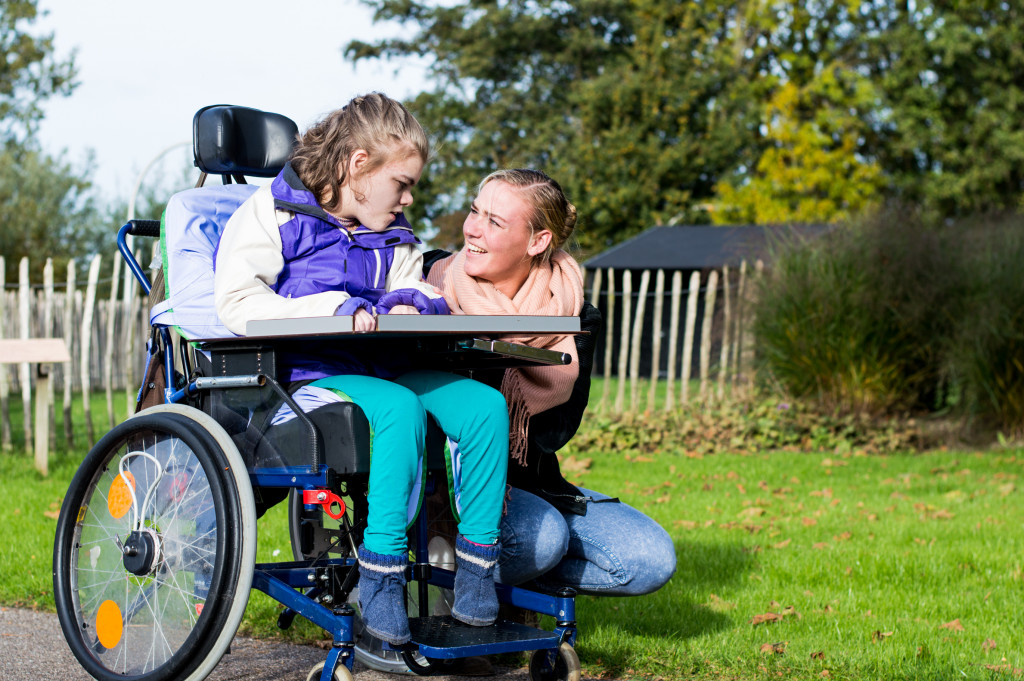- 15% of the global population has some form of disability, which is expected to double by 2050.
- People with impairments may suffer from low self-esteem and lack confidence due to insensitive reactions from others.
- Employment opportunities and social activities are becoming more accessible for people with disabilities, and special programs provide them equal access and opportunities.
- Self-care must be prioritized by people with impairments, such as setting realistic goals and engaging in physical activity.
- Assistive technologies such as exoskeletons, smart wheelchairs, and adaptive interfaces help disabled individuals gain independence.
People face different challenges in life, and some might even have to deal with the struggles of impairment. Impairments can come in different forms, such as physical, cognitive, or sensory impairments. It’s a fact of life that each person has unique limitations that can significantly affect our daily lives. However, it would help if you did not let your limitations define or hinder you from achieving your goals. Here’s a look into disability worldwide, how it can affect your life, and how technology has helped people with disabilities.
Disabilities in The World
It’s estimated that about a billion people worldwide have some form of disability. This accounts for roughly 15% of the global population, expected to double by 2050 due to an aging population. Disability can vary across different regions, with certain countries having higher rates than others. For example, Africa has a higher rate of disability compared to other continents.
How it Affects People’s Lives
Disabilities can affect people’s lives in various ways. Here are some of those ways:

Self-Esteem and Confidence
One of the most significant and challenging ways impairments can affect you is your self-esteem and confidence. Impairments can sometimes trigger feelings of low self-worth and inadequacy, leading to a lack of confidence in your abilities. These negative emotions are often heightened when people with impairments encounter insensitive or impolite reactions from others.
One way to address this is through disability advocacy, a form of campaigning for the rights of people with disabilities. Reaching out to advocacy groups, joining support groups, and attending events celebrating diversity and difference can help someone with impairments connect with others and feel less alienated from society.
Employment
Employment is significant for one’s life as it means a stable source of income, self-esteem, and social interaction. People with impairments may find it challenging to find work, or they might encounter discrimination from people who do not understand the challenges they face in their daily lives.
Thankfully, governments and companies have created programs to provide equal access and opportunities to people with impairments, such as assistive technology, workplace adaptations, and reasonable accommodations. Furthermore, companies should have diversity and inclusion policies to promote a respectful culture and embrace their employees’ differences.
Social Life
Socializing can be challenging for people with impairments, as they may struggle to access some social activities, such as going to a bar or attending a concert. People with cognitive impairments may also find reading social signals or understanding sarcasm challenging, which can impede developing or maintaining relationships.
However, social opportunities for people with impairments have been increasing over time. Many social events and groups are now adapting to ensure they are accessible to everyone. For instance, some concert venues now offer sensory-friendly shows for people with autism. Many online communities have been created, such as Facebook groups and forums specifically designed for people with impairments to connect and share their experiences.

Health and Well-being
Being impaired can significantly impact a person’s health and well-being, as they can affect their mobility, daily routine, and mental health. People with impairments may be more susceptible to depression and anxiety and struggle to access medical care or appointments.
People with impairments must prioritize their health and well-being by creating a self-care routine that suits them. This may involve setting realistic goals, engaging in regular movement or physical activity, reaching out for mental health support, and taking breaks when needed.
Usage of The Computer
Lastly, now that the world relies on computers and technology to communicate, work, and entertain, people with impairments must also be able to use them. Thankfully, companies have developed technologies to help disabled people to use the computer. For example, there is now reliable hearing-impaired software for computers. This software converts text into speech, allowing people with hearing impairments to access computers. There are also assistive devices for those with physical disabilities that allow them to control the computer with their voice or body movement.
Technologies Helping Disabled Individuals
Various technologies are now designed to help disabled individuals live more independently. Here are three of them:
Exoskeleton
One of the most advanced technologies helping disabled individuals is an exoskeleton. An exoskeleton is a robotic device that helps people with physical disabilities to move, stand up, and walk. This technology has already been used to help paraplegics regain mobility and independence.
Smart Wheelchairs
Another assistive device designed for disabled individuals is smart wheelchair. Smart wheelchairs are powered by computer software and can be controlled with voice commands or joysticks. They are also capable of autonomous navigation, allowing people with physical disabilities to travel without assistance from others.
Adaptive Interfaces
Lastly, adaptive interfaces are becoming more popular as they allow people with cognitive impairments to control devices such as computers using eye movements or body gestures instead of keyboards or mice. Adaptive interfaces have already been used to help people with autism and other cognitive impairments use computers independently.
Impairments can be daunting and difficult to deal with, but they do not have to stop you from living your life. Thanks to various assistive technologies and inclusion initiatives, disabled individuals are now more capable of leading independent lives. Your responsibility as a society is to create an inclusive environment and ensure everyone has the same opportunities regardless of their disabilities.
